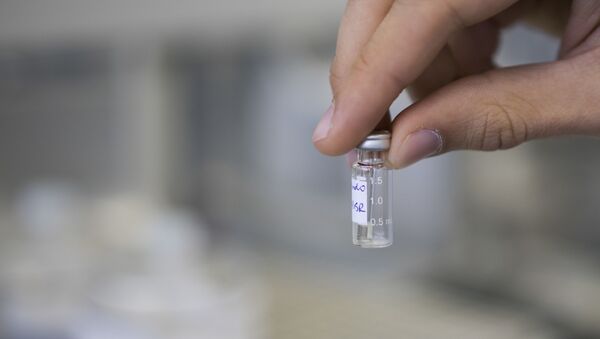India is likely to supply anti-malarial hydroxychloroquine to a number of countries despite a strict ban that came into effect following a record jump in COVID-19 cases, several government sources said, adding that the country has enough stock of the drug for domestic needs.
“India has the capacity to produce over 200 million tablets every month. At present, the country has enough stock as well and if the situation arises we can ramp up supply at any moment", one government official told Sputnik on the condition of anonymity.
On 4 April, India’s Ministry of Commerce issued a notification banning the exports of the drug and its formulas “without any exceptions”.
Earlier on 25 March, the government had banned overseas shipments with limited exceptions such as on “humanitarian grounds” and for meeting prior commitments.
“After a call today with Indian Prime Minister Narendra Modi, India is giving serious consideration to releasing the hold it put on a US order for hydroxychloroquine", Trump announced at a White House coronavirus task force briefing after telephone conversation on Saturday. President Trump has touted hydroxychloroquine as a “game changer” in the fight against COVID-19.
Another government official confirmed that at least 29 countries which include nations in Latin American and Europe have asked India to supply the drugs to fight the pandemic.
Neste sábado, em contato com o Primeiro-Ministro da Índia, @narendramodi , solicitei apoio na continuidade do fornecimento de insumos farmacêuticos para a produção da hidroxicloroquina. Não mediremos esforços para salvar vidas. 🇧🇷🤝🇮🇳 pic.twitter.com/v03Bvti40R
— Jair M. Bolsonaro (@jairbolsonaro) April 4, 2020
India's Ministry of Health recommends hydroxychloroquine 400mg BD for one day followed by 200mg BD for four days in combination with Azithromycin (500 mg OD for five days) for "patients with severe disease and requiring ICU".
The drug is considered a potential cure for COVID-19, which has taken over 68,000 lives since December 2019 when the virus was first reported in China’s Wuhan.
The Indian government imposed the ban on the anti-malarial drug after a group of ministers, based on data compiled by the country’s apex research centre, estimated that the country is in an “accelerated phase” of the pandemic and will enter into an “ending phase” in the mid-May this year.
As per data published by the Health Ministry on Monday morning, India has recorded 4,067 positive cases so far and has lost 109 lives.
The Modi government has released a 20-page containment plan under which the government will create buffer zones and sealing off areas for nearly a month in case of massive outbreaks in hotspot regions. Modi announced an unprecedented nationwide 21-day lockdown on 24 March to curb the spread of COVID-19.


